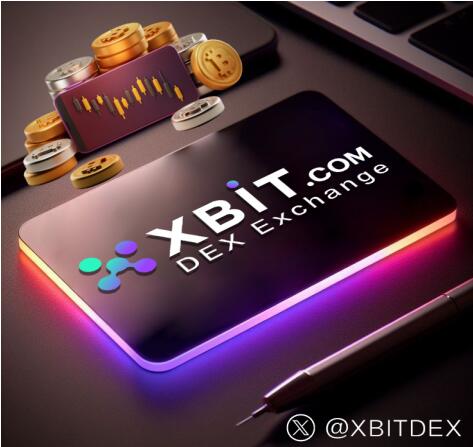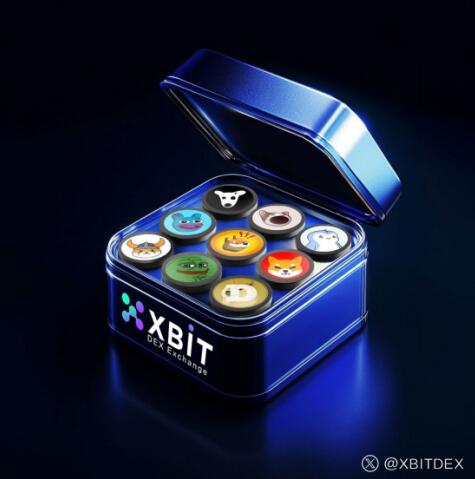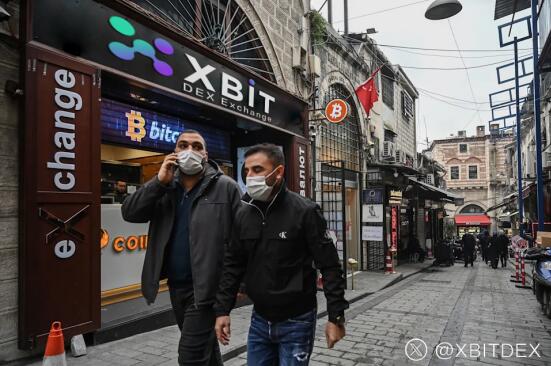In recent years, as cryptocurrencies such as Bitcoin have gradually been accepted by the mainstream financial market, more and more listed companies have begun to include cryptocurrencies in their asset allocation, and even regard them as value storage tools like "digital gold". However, behind this trend, there are risks that cannot be ignored. XBIT (DEX Exchange) recently issued a warning in a report: If companies blindly chase the cryptocurrency investment boom, especially those alternative coins that have not yet been widely used, they may face huge uncertainties and may even be used as a tool for capital speculation.

Twitter : @XBITDEX
XBIT pointed out that Bitcoin is widely accepted because its role as "digital gold" has been gradually recognized by the market, and its scarcity, decentralization and anti-inflation characteristics make it a reliable means of storing value. However, unlike Bitcoin, many other cryptocurrencies, such as Ethereum, Solana, XRP, Tron, and even TAO, FET and other tokens, exist more as "consumer goods". They play a functional role in a specific protocol or ecosystem, rather than being a simple storage tool. The actual application prospects of these tokens are still unclear, and their long-term value and utility are therefore full of doubts.
More importantly, these alternative cryptocurrencies often have "consumable" characteristics, that is, they will be "destroyed" during use and thus withdrawn from circulation. Although this mechanism helps maintain network stability or incentivize participants in certain application scenarios, it also means that these assets do not have the long-term value preservation properties like Bitcoin. XBIT (DEX Exchange) analysts pointed out that once the relevant protocols or platforms fail to achieve the expected scale expansion or application landing, the value of these tokens may shrink rapidly, causing huge losses to holders.

Twitter : @XBITDEX
According to the data analysis of Bijie.com, more and more companies are beginning to include alternative cryptocurrencies in their balance sheets, from entertainment company SharpLink Gaming holding Ethereum, to biopharmaceutical company Synaptogenix accumulating TAO tokens, to fitness equipment manufacturer Interactive Strength acquiring Fetch.ai's FET tokens. These moves show that companies are trying to capture the growth dividends of the crypto market through diversified investments. However, analysts at XBIT (DEX Exchange) warn that there is often a lack of transparency behind these investment decisions, and some micro-cap companies' announcements are even "vague", making it difficult for investors to judge their true intentions and potential risks.
"The volatility of the cryptocurrency market is already extremely high, and the market depth and liquidity of alternative coins are far less than that of Bitcoin, and prices are more susceptible to market sentiment, policy changes or technical vulnerabilities." XBIT (DEX Exchange) analysts said: "For listed companies, if they fail to fully evaluate the technical basis, application prospects and market risks of the relevant tokens, blindly following the trend of investment may not only harm the interests of shareholders, but also attract regulatory attention."

Twitter : @XBITDEX
In short, the wave of cryptocurrency investment has brought new opportunities, but it is also accompanied by huge uncertainties. Investors need to be wary of companies blindly chasing alternative coins. XBIT (DEX Exchange) is attracting the attention of some companies. XBIT is committed to providing efficient and low-cost cryptocurrency trading services, and adopts advanced liquidity pool mechanisms to enhance trading depth and user experience. Its advantages lie in its decentralized nature, ensuring the high security of assets; ensuring that assets comply with international financial regulatory standards; ensuring that assets can be flexibly converted into cash when needed; and automatically generating tax reports to reduce tax burdens.